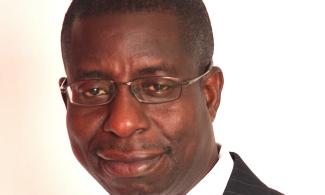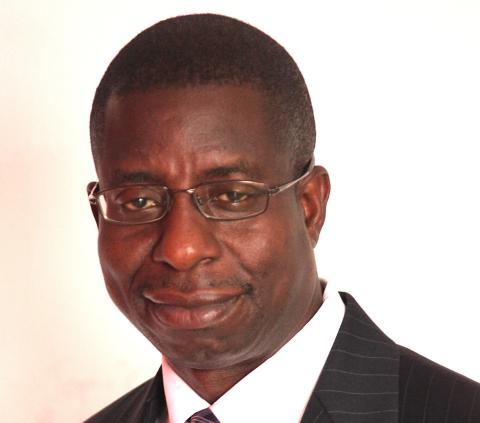
These two tribunes of truth and justice recently marked their sixtieth anniversary in a beautiful land made almost unliveable on any proper index of healthy living, where the average life expectancy is a bleak fifty-four years, placing us behind 215 other countries in the world and 15 in Africa. They can’t hear me, but I am shouting sixty hurrays in the first instance, and sixty more (for I wish them a very long life), in tribute to their extraordinary courage.

I was twenty-three and in the first semester of my final year as a law student at the University of Benin. He was thirty and already a rising star in the legal profession, though still under the wing of the urbane but ever battle-ready Alao Aka-Bashorun. I had recently ceased to be Secretary-General of the Students Union and Opeyemi Bamidele (now literally taking the bullets of enemies of democracy in our land) newly sworn in as the Chairman of the Caretaker Committee, pending the election to constitute a new executive. And it was the matter of the election that led to my “indefinite suspension” — along with Bamidele and two others, in the first instance (eight more followed suit, besides the president of the union) — thereby almost confirming my father’s fear the day I informed him of my intention to run for a Students Union office: that I did not intend to graduate!
Still smarting from our victory in the fight for the restoration of the union at Uniben — following the unconstitutional ban on student union activities in the wake of the nationwide protests sparked by the murder of four Ahmadu Bello University students by anti-riot policemen precipitately called to quell a peaceful protest (Professor Ango Abdullahi, the vice chancellor, would further outrage the nation by announcing that “only four students died” as if one were not too many) — Professor Grace Alele-Williams sought to pacify her campus for General Babangida, the reigning military dictator, by issuing intolerable election guidelines. Candidates were to submit their manifestoes for vetting; were not to use university policy as a campaign issue; must not belong to campus associations (this aimed at disqualifying members of the “banned” League of Patriotic Students, resurrected as the Cultural Awareness Club, our group); possession of a minimum Grade Point Average of 2.75; and disqualification without reason. Why call it an election, you might ask, but we were then in the early years of Babangida’s political witchcraft, hence his dying need to pacify the campuses by emasculating the National Association of Nigerian Students (NANS), as well as the Academic Staff Union of Universities (ASUU), arguably the only organised opposition at the time to the burgeoning military terror. Our suspension was punishment for rallying the students against the obnoxious guidelines, for calling “on students to boycott” the elections and — of course, they had to add this — “incit[ing] them to violence and demonstration.”
But that was hardly our only crime. At the time of the second petrol price increase by Babangida from 39.5 kobo to 42 kobo per litre — yes, the national currency did have value once upon a time! — the union had barely been inaugurated and so we lacked the platform for an effective protest, with the University of Jos, I believe, leading the way then. Then Babangida gave us a chance to salve our festering wound of non-participation: the students unions of the universities that shunned “violence” by not protesting would each be given an eighteen-seater bus to commend their “maturity.” Promptly, we made clear what kind of praise or gifts the University of Benin union would accept by holding a rally and rejecting the bribe outright. But the true test of the union’s character followed quickly when the university decided to cancel resit examinations. Resits gave a second chance, a lifeline even, to struggling students, many of whom were indigent, some constrained to do menial work in town to see themselves through school, and who still had to cope with poor living conditions, and non-existent or inadequate learning materials as libraries and laboratories were sapped to “death” by the IMF/World Bank’s Structural Adjustment Programme, imposed by Babangida on the nation despite its total rejection by the people. Whatever the merits of the decision, the students would accept it only if living and learning conditions were improved, even if by a mere fifty percent. The vice-chancellor would not budge and challenged me, as the perceived recalcitrant mouthpiece of the students, to a debate. The entire university trooped to the quadrangle of the Faculty of Social Sciences to be schooled on how misguided the new students union was. As it happened, she lost the argument and was constrained to restore resit exams for the time being. That was the last straw. Something had to be done.
And so disregarding our request to examine the evidence and witnesses against us, and for adequate time to prepare our response to the charges of holding a rally, and incitement to demonstration and violence, the university proceeded at break-neck speed to hand us what, in effect, were expulsion letters. I took the query, our responses, and the suspension letters to Femi Falana in Lagos, meeting him at home in Ketu where he lived at the time. On the principle of fair hearing alone, our suspension would be annulled by the court, but what to do about the ubiquitous cast-iron ouster clauses in the Constitution (Suspension and Modification) Decree, the Federal Military Government (Supremacy and Enforcement of Powers) Decree, recently reiterated in the Students Union Activities (Control and Regulation) Decree 47? Falana saw a way out. He would bring to aid the African Charter on Human and Peoples Rights, already ratified and domesticated, which, as an international treaty, Nigeria was obligated to enforce in her courts. By sheer coincidence, the late Justice James Omo-Agege of the former Bendel State High Court was assigned the case, Bamidele & Ors v The University of Benin. He had been one of the resource persons who helped birth the Charter during his time as an expatriate jurist in The Gambia. He was more than happy to give it life, though the university’s failure to adhere to its enabling Act had already simplified the task for him. He voided our suspension/expulsion. I lost a semester but returned to complete my LL.B with honours, though Professor Alele-Williams would withhold my faculty reference form and prevent my admission into the Nigeria Law School until a month before the bar exam, the battle for my admission waged administratively this time by Mr Aka-Bashorun himself.
He was thirty and I was twenty-three when we first met. I, a law student with his head in law and his heart in poetry and literature, and he a copy writer with the defunct Grant Advertising at an indifferent address on Bode Thomas Street, Surulere, Lagos. Kunle Ajibade, would soon after wend his way to the newsrooms of The Guardian, The African Concord, and TheNEWS magazine and Tempo newspaper, the last two as co-founder and editor. I don’t recall precisely the occasion of our first meeting — whether the 1988 Association of Nigerian Authors annual conference at the National Theatre or on one of my many truant jaunts to Lagos to attend this or that reading — but whichever it was, I suspect that I was introduced by the late poet Idzia Ahmad, Ajibade’s colleague at Grant. It was in his days at The African Concord, however, that I really got to know Ajibade. With the encouragement of Lewis Obi, its editor, and Ohi Alegbe, copy editor, I had begun contributing articles to its pages. And then in 1993 I won the Association of Nigerian Authors poetry prize with an unpublished manuscript, what became Homeland and Other Poems. Ajibade who had begun a series of long interviews of established authors for Weekend Concord, was, it seemed, almost as delighted as my euphoric self and interviewed me for his report as if I were already a bona fide poet, thereby doing wonders for my budding writer’s ego!
But literature is one thing and real life another. And so it was that soon after that we would both be in the trenches during the vicious days of the Babangida/Abacha tyranny that culminated in the cruellest evil perpetrated against democracy and our sovereign right to self-determination: the annulment of the June 12, 1993, presidential election. Jailed for life, he was, by a military tribunal set up to confirm verdicts already reached before the charges were framed. Ajibade’s offence had been no more than publishing General Obasanjo’s statement in denial of the ridiculous charge of accessory before the fact of treason, making Ajibade’s offence purportedly that of being an accessory after the fact of treason! Whenever anyone quite solicitously wondered how I coped with six months of preventive detention, I always said that I got away lightly and would cite Ajibade among other human rights and democracy activists given life imprisonment sentences, or who had spent well over a year in the Babangida/Abacha gulag, Ajibade having done three-and-a-half years before freedom came in the wake of his jailer’s death. I was amused when Ngugi wa Thiong’o conceded to Ajibade the status of “older jailbird” during a conversation with him at the 2016 Ake Arts and Book festival in Abeokuta because he had himself spent only one year in Arap Moi’s prison.
Jailed for life, but the people on whose side he fought, as the rest of the world, hailed him for a life courageously lived. As they hail Falana who in those days walked through revolving doors to prison cells and SSS dungeons. Among his peers and even succeeding generations, Falana stands tall as a people’s solicitor and advocate, insisting on seeing law as a tool of social engineering rather than merely as a genteel profession of self-satisfied practitioners, best served without a conscience, by keeping silent in the face of tyranny or, even better, taking the side of diabolical governments. For his part, Ajibade was editor of Tempo, the underground newspaper set up by TheNEWS crew after their magazine had been proscribed. These two tribunes of truth and justice recently marked their sixtieth anniversary in a beautiful land made almost unliveable on any proper index of healthy living, where the average life expectancy is a bleak fifty-four years, placing us behind 215 other countries in the world and 15 in Africa. They can’t hear me, but I am shouting sixty hurrays in the first instance, and sixty more (for I wish them a very long life), in tribute to their extraordinary courage.
Ifowodo, poet, lawyer and activist, represents Delta State on the Governing Board of the Niger Delta Development Commission (NDDC). A Good Mourning, his latest book of poems, includes his reflections on the June 12, 1993 catastrophe.